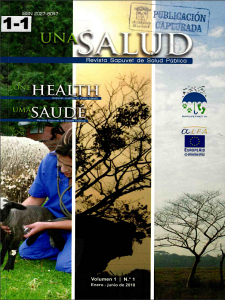Abstract
It was carried out a seroepidemiologic study from May to July 2003, in a canine breeding in Huesca (Northeastern Spain), to evaluate the antibody titer against leptospires (LPT). The study included 207 dogs of different breeds: Golden Retriever (GR), Labrador Retriever (LR), and Pyrenean Mountain dog (PM). 80 where adult and 127 puppies. Serum samples of puppies were taken sequentially: at 6 weeks old (D0), at eight weeks old (D1, day of the first LPT vaccination), at 10-12 weeks old, (D2, day of the second LPT vaccination); at 2 -4 weeks of the previous (D3, third vaccination). All this vaccines were polyvalent. Adult dogs were vaccinated annually in April with a pentavalent vaccine, serum was taken in July. The ELISA test was used to detect IgG antibodies against pathogenic LPT. The results were analyzed by Epi Info statistical programme. Adult dogs showed higher mean of Ab titres against LPT (7.7 Log2, 1/208) than that of the puppies (5.6 Log2, 1/49), (p = 0.0000). There were association between genre and Ab titres reached (p ≤ 0.05), where adults females had the higher Ab titres. In puppies, the moment of sampling was associated to differences on Ab titres (p ≤ 0.05). In the interval from 6 to 8 weeks old it was observed a slight increase of the mean of Ab titres, without being vaccinated, probably they had natural contact with leptospiras. It was observed a partial seroconversion after the first and second LPT vaccination. GR breed showed the best immune response to the first LPT vaccination.Downloads
Download data is not yet available.



